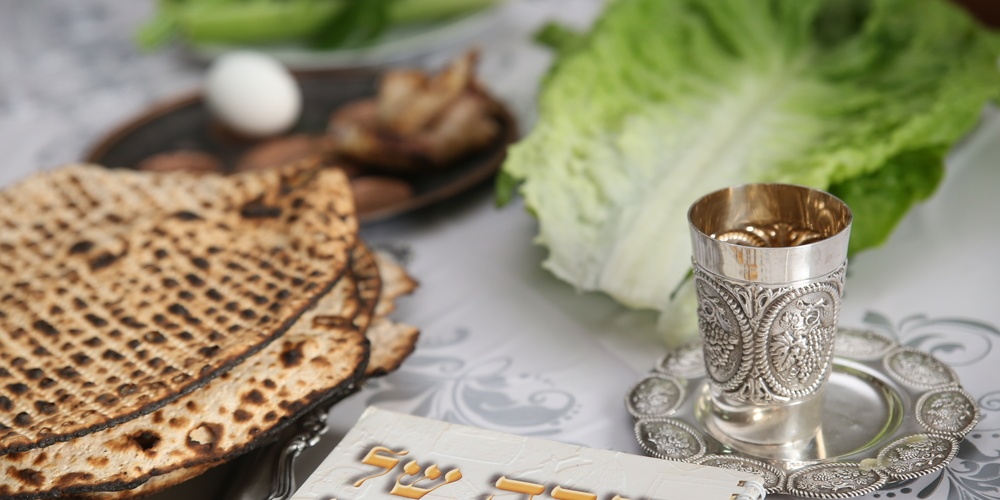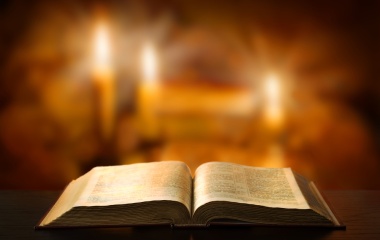
It is the holiday of Pesach that celebrates our becoming a nation and is the cornerstone of Judaism. Remembering the Exodus provides the backdrop to so many of our mitzvoth, whether it is Shabbat or Yom Tov, tefillin, mezuzah, kindness to strangers, or our sexual ethics. On Pesach, we focus on the meaning of freedom; but the mitzvah to remember the Exodus, zechirat yetziat mitzraim, is one that must be fulfilled each and every day, if by nothing more than mentioning it in our davening.
Considering the primary role Pesach plays in all that Jews do, it is somewhat surprising that the obligation to sing Hallel, to offer special praises to G-d, is only operative on the first of the days of Pesach. (Our custom of reciting half Hallel for the last six days of Pesach is nothing more than that, a custom, with no source in Talmudic law.) This omission is in marked contrast to Sukkoth, when the complete Hallel is to be recited every day. Furthermore, Hallel is not only an integral part of the seder, it is the only time of the year that we recite Hallel in our evening prayers. Why, then, do we not recite (full) Hallel during most of Pesach?
The midrash famously states that since the Egyptians drowned in the sea, our joy is diminished, so it is inappropriate to recite Hallel on any but the first day. "My creatures are drowning in the sea and you (dare) to sing!" G-d thundered. However, this midrash, although it represents a beautiful idea, is nowhere to be found in our legal sources, and is of little Halachic significance.
G-d's words rejecting songs of praise were directed at the heavenly angels, who knew nothing of suffering or redemption in Egypt. The Jewish people, who actually experienced redemption from this wicked empire, were entitled to sing the praises of G-d, praises that have been incorporated in our daily Siddur. In fact, the az yashir led by Moshe (and Miriam) after crossing the sea makes direct reference to the drowning of Egyptians, which in no way diminishes the joyfulness of the song. Unfortunately, by not heeding the moral imperative and repeatedly defying G-d, the Egyptians got exactly what they deserved. "When the wicked perish there is joy" (Mishlei 11:10).
The Talmud (Eruvin 10b) offers a different explanation, citing the fact that the korbanot brought on the days of Pesach are the same every day—two bullocks, one ram and seven lambs—whereas on Sukkoth, the number of bullocks changes every day, diminishing from 13 on the first day to seven on the seventh day (along with a constant two rams and 14 sheep). Somehow, this distinctiveness of sacrifices requires a separate recitation of Hallel. Let us examine why.
The onset of Yom Tov ushers in an obligation of simcha, joy. While the halacha demands certain external manifestations of simcha, i.e., drinking wine and eating meat, the ultimate in joy is being in the presence of G-d, feeling that G-d is constantly with you. And what better place to feel the presence of G-d than the Beit Hamikdash in Jerusalem? Thus, the mitzvah of aliyah laregel, going to the Temple, on Yom Tov.
Apparently, the "static" korbanot of Pesach indicate one obligation of simcha that extends for seven days; whereas Sukkoth, with its distinct sacrifices, has an independent mitzvah of simcha each day. This, of course, begs the question of why it is so. Perhaps we can suggest the following:
Pesach, commemorating our Exodus, is a means to an end. This one-time historical event develops its meaning only when we establish our covenantal relationship with G-d at Sinai, and gains its ultimate purpose when a model state is set up in the Land of Israel. Pesach is a historical event with great meaning for us today.
Sukkoth, on the other hand, commemorates G-d's continuing protection of the Jewish people, originating as it does in the clouds of glory that protected our ancestors in the desert. By sitting in a flimsy sukkah, we testify that, despite whatever tragedies Jews have had to endure throughout history, G-d continues to protect His people. It is not a historic event, but a daily ongoing process that we celebrate on Sukkoth. Three thousand, five hundred years after the Exodus, we are strong and getting stronger. Without G-d’s protective hand, we would have disappeared long ago, depriving the world of so much that the Jews have given it.
It is Sukkoth, not Pesach, that is z’man simchateinu. The Torah itself makes no mention of the mitzvah of simcha on Pesach; referring to it, instead, three times regarding Sukkoth. Rather, Pesach is z’man cherutainu, the time of our freedom. Freedom must lead to simcha, to greater closeness to G-d. If it does, then we can truly feel joy each and every day.



